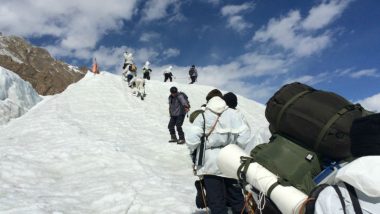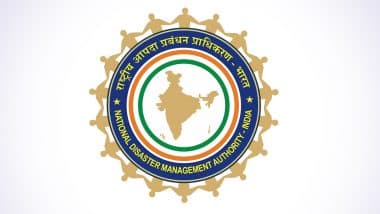Gilgit, March 4: Thirty-six glacial lakes in various valleys of Gilgit-Baltistan have been declared dangerous with seven of them posing a major threat to the people, said a survey by Focus Pakistan, an NGO. After conducting the survey, experts attending a seminar in Islamabad said Gilgit-Baltistan is highly vulnerable to climate change. The surge of the Khurdopin Glacier in Shimshal Valley, Hunza, and the formation of a lake, has emerged as a major cause of concern for geologists and local residents.
"The Khurdopin Glacier has touched the mountain which has formed a small lake. The lake is frozen at the moment, but from March onward, when the ice starts melting, the flow of water would be intense. We are not predicting immense damage, but footbridges and Shimshal Valley, which is very narrow in nature; the road there might get affected, said Dr. Nazeer Ahmed.
36 glacial lakes in various valleys of #GilgitBaltistan declared dangerous due to melting, at least seven of them pose a threat to locals, says survey by a Pakistan based NGO. The region has been facing environmental issues since launch of China-Pakistan Economic Corridor (#CPEC) pic.twitter.com/gJHPYChJ67
— ANI (@ANI) March 4, 2018
Officials from Gilgit Baltistan Disaster Management Authority, who were present during the seminar, are seeking help to install an alarming device to protect villagers during any disaster.
We are inviting a group of geologists and experts from NDMA (National Disaster Management Authority) for an inspection and seek their recommendations.
As far as the early warning system is concerned, we are installing an international system that if the lake gets outburst, we can get early warning and the villagers can be altered, said official of Gilgit Baltistan Disaster Management Authority, Mujahi Khan.
Gilgit-Baltistan has been facing several environmental threats since the launch of China Pakistan Economic Corridor (CPEC), a multi-billion dollar infrastructure and development-related project. Cutting of jungles, mountains and increase in heavy vehicular movement in the region poses a serious threat to glaciers.
"In Shimshal Valley, there are three glaciers, out of which one is taking the shape of a lake. The lake is expanding rapidly which poses a threat to Hunza and the entire Gilgit Baltistan. No attention was paid to protect the environment since the CPEC project was launched. No survey has been done about the aftermath of this project as thousands of tankers are passing through the territory which directly affects the glaciers. The department is paying no attention," said a resident of Gilgit, Wajid Ali.
Gilgit-Baltistan is a part of the erstwhile princely state of Jammu and Kashmir and is under the occupation of Pakistan since 1947, and ever since then, Pakistan has been misruling the region. The influx of China in Gilgit Baltistan has added to the woes of the local people.













 Quickly
Quickly





















